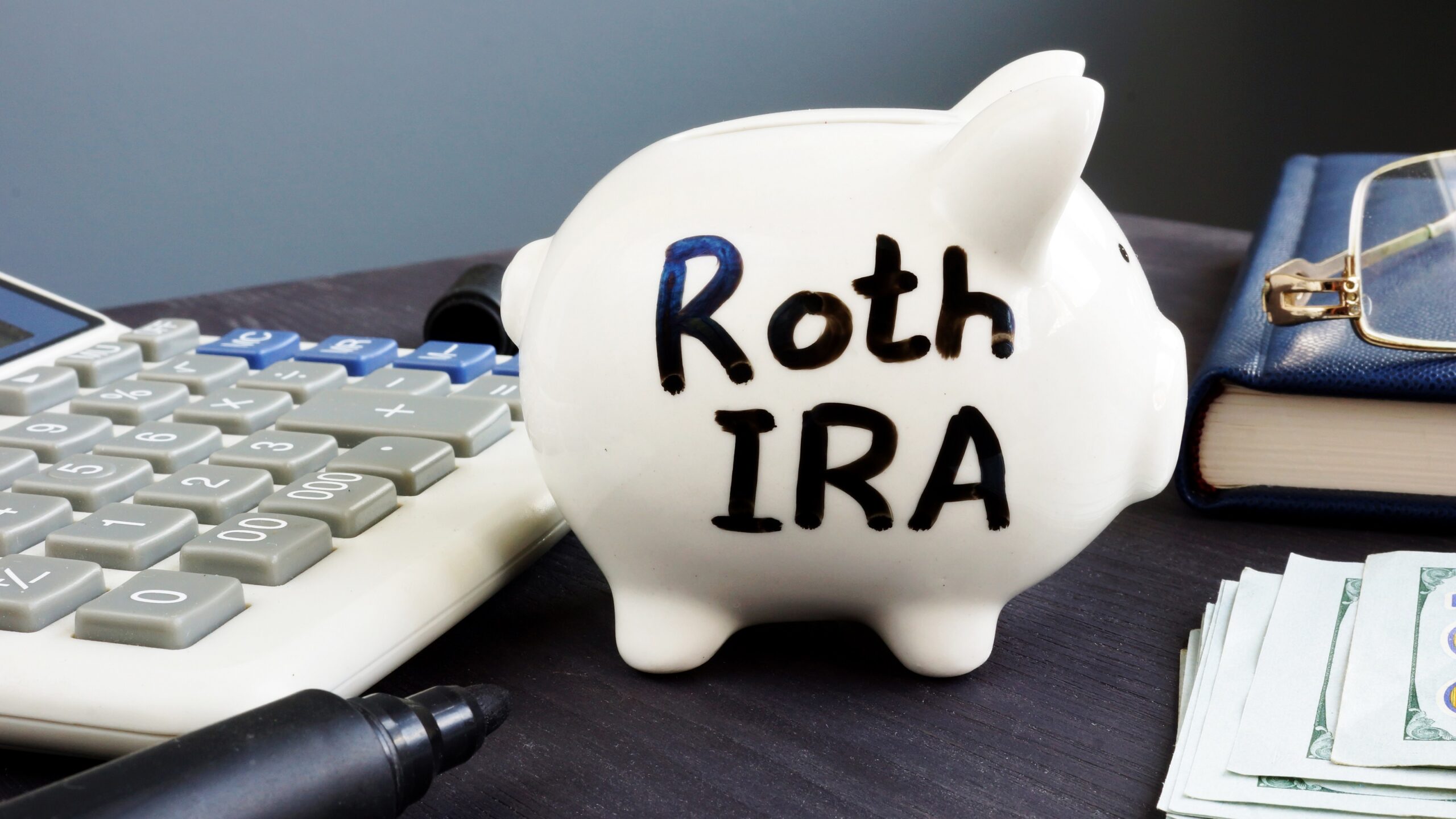Considering Roth Conversions? Read this.
Written by Grace Stolberg
I frequently encounter the same recurring questions from clients: Am I saving enough for retirement? How can I minimize my taxes? Do I need a trust? Among these, one question clearly takes the cake as the most frequently asked question.
Should I do Roth Conversions?
The short answer:
Yes. For most retirement savers, converting Traditional Retirement Accounts to Roth will lower your total lifetime taxes paid and increase the value of the estate you leave to your heirs. If that sounds appealing, keep reading.
What is a Roth Conversion?
A Roth Conversion involves moving funds from a tax-deferred account (like a Traditional IRA or 401(k)) into a Roth IRA. The amount converted is taxed as ordinary income for that year. After paying the taxes, funds in the Roth IRA can grow tax-free.
Why Consider Roth Conversions?
If you’ve been a diligent saver and a prudent investor over the course of your career, you will have a substantial amount of savings in tax-deferred accounts. This is great! However, Traditional Retirement Plans have one problem: You also have a substantial IOU to the IRS. Large balances in tax-deferred accounts can quickly become problematic once Required Minimum Distributions (RMDs) kick in, starting between ages 73 and 75 based on your birth year. RMDs increase every year to provide the IRS with tax revenue on funds that were accumulated in tax deferred accounts. This requirement may mean you are forced to take much larger withdrawals than your actual income need. This could mean unnecessarily higher tax bills over your lifetime.
Roth Conversions, when done with proper tax planning, can help manage this pending tax problem. By converting funds to a Roth IRA, you pay taxes now, at a lower rate. This savvy maneuver works to reduce future RMDs and lower the overall tax bill on your withdrawals. A Roth conversion strategy gives you more control over your retirement income and may even eliminate RMDs if done early in your retirement years.
Key Considerations Before Converting
Understand Your Total Household Income
Roth Conversions are taxed at your effective income tax rate. As your income increases, you are required to pay a higher percentage of taxes at the Federal level (and in many states too). Therefore, it’s essential to have a clear picture of your total household income before you decide to convert. This includes any capital gains, interest, and dividend income from your portfolio. To optimize your conversion strategy, it’s best to wait until the end of the year to evaluate your full income picture. At year end, review your household income in detail, accounting for all sources and their tax implications. By identifying any additional income, such as bonuses or significant realized capital gains, you can accurately project the costs associated with Roth conversions. This detailed approach will help you avoid unexpected surprises come tax season.
Consider Future Lower-Income Years
If you’re near retirement, it’s often wise to wait until you’re fully retired to start Roth conversions. Without earned income, your taxable income will most likely be comprised of Social Security payments, any pension or annuity benefits, IRA withdrawals, and dividend and interest paid out to you during the year. This time of lower income before your RMDs begin from tax-deferred accounts, is the ideal time to convert. You will likely be in a lower tax bracket, giving you more room to convert funds at a lower cost.
Get Dollar Specific on Projected Tax Savings
A significant part of the financial planning work I do with my clients is projecting their yearly tax liability over the coming decades. When I create Retirement Income Projections for my clients, I’m able to look ahead to see what years will have lower taxable income. Then we can design a Roth Conversion strategy and project what years are the best to convert. When we do this date-specific/dollar-specific planning, you can determine a dollar value for total tax savings throughout the course of your life from choosing to do Roth Conversions. This process helps determine the optimal timing and appropriate amount of Roth Conversions for your household each year.
Do You Have Other Funds to Cover Taxes?
It’s best to have funds outside of your retirement accounts to pay the taxes on a Roth Conversion. Ideally, you should avoid withholding from the conversion amount itself. For example, if you convert $100,000 and withhold 25% for taxes, only $75,000 will make it into the Roth IRA. This automatically eliminates a quarter of your conversion from reaping the benefits of tax-free compounding. It would be better to convert $100,000 and pay the 25% tax bill from another source like a bank account or brokerage account. We recommend planning ahead to cover these taxes, so the full amount of conversion benefits from tax-free growth.
Consider all Forms of Taxes When Converting
Income taxes at the federal and state levels are not the only tax consequences when you convert to a Roth IRA. It’s important to be mindful of Medicare Premium Taxes when considering a Roth conversion. The brackets for Medicare Income-Related Monthly Adjustment Amounts are an important consideration if you are on Medicare. When evaluating Medicare premiums, the Social Security Administration looks at your taxable income from two years prior. Knowing how much you will increase your income by converting to Roth, will help avoid unnecessary taxes on your future healthcare related costs.
Impact on Your Heirs
Roth conversions are a powerful tool for lowering future tax liability and growing your wealth tax-free. However, if your income remains high throughout retirement due to pensions or other income sources, you might not experience substantial tax savings yourself. Don’t less this discourage you, though. The real benefit could be for your heirs. Under Secure Act 2.0, those inheriting a non-spouse Traditional IRA have 10 years to fully empty the account. Your beneficiary will be forced to take RMDs in years 1-9, and have the account emptied by year 10. Every dollar distributed from a Traditional IRA is taxable to them at their effective tax rate, forcing them to split their inheritance with Uncle Sam. Inherited Roth IRAs must also be emptied by the 10th year following the original owner’s death. However, your beneficiary will not have RMDs and can leave the money to grow tax-free over the 10 years. When they do take a distribution (by the end of the 10th year) they’ll pay absolutely $0 in tax on distributions. When you convert your wealth to a Roth IRA, you ensure more of your wealth goes to your loved ones rather than to the IRS.
Final Thoughts
Roth Conversions are a hot topic among retirees and financial planners. Most people today believe tax rates will be higher in the future than they are today. A Roth conversion can be a great tool to lower future tax liability and to provide your heirs with a tax-free inheritance. But you need to be prudent. Roth conversions can also come with a lot of problems if you convert your tax-deferred dollars without planning around taxes. It’s important to work with your advisor to optimize the timing and amount you convert.
Disclaimer: Although we obtained information contained in this article from sources we believe to be reliable, we cannot guarantee its accuracy. The opinions expressed in the article are those of O’Keefe Stevens Advisory and may change without notice. The information in this article may become outdated and we have no obligation to update it. The information in this article is not intended to constitute individual investment advice and is not designed to meet your personal financial situation. It is provided for information purposes only and nothing herein constitutes investment, legal, accounting or tax advice, or a recommendation to buy, sell or hold a security.
Investment advisory services are offered through O’Keefe Stevens Advisory, Inc., an SEC Registered Investment Advisor.
© 2024 O’Keefe Stevens Advisory, Inc. All rights reserved. This content cannot be copied without the express written consent of O’Keefe Stevens Advisory, Inc.



No responses yet